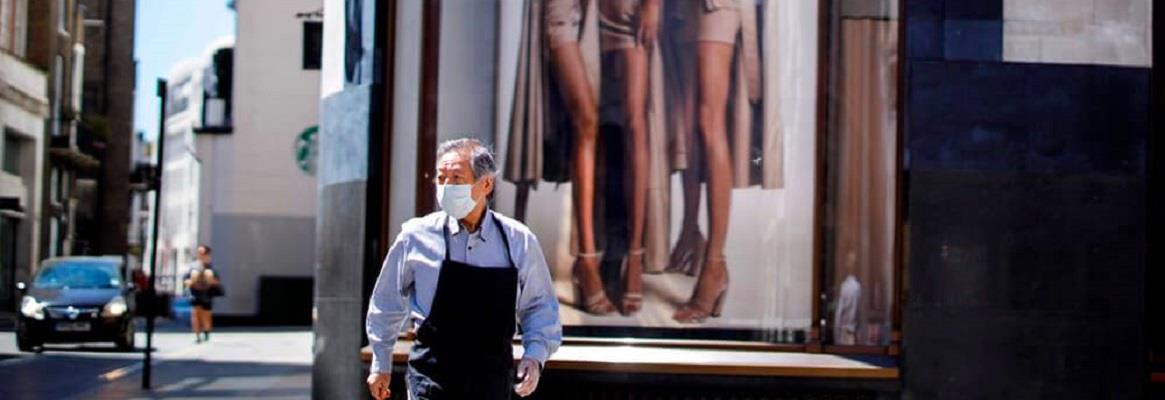Ever wondered if and how, this global pandemic has impacted the fashion industry? So did we, and what we’ve found is…a hopeful mess. With so many industries and individuals impacted by Covid-19, it would be downright strange if the fashion world didn’t find itself among them. Now, reveal how the fashion industry has been hit by the pandemic and subsequent lockdown, how it is adapting, and moving forward.
We’ll also look at how some fashion brands struggle to survive, while others have found ways to thrive more than ever. Finally, we’ll look at the never-ending problem of greenwashing and why we need to act now before it is too late.
The End Of Fashion Midseasons?
One of the proponents of no fashion seasons is Alessandro Michelle, the creative director of Gucci. Alessandro wants to end midseason fashion collections by reducing the number of shows from five to two each year. He also sees a future in gender-free fashion, given its positive impact on people and the environment as well but on this a bit later.

In some ways Alessandro’s idea of ‘no fashion midseasons’ make sense. Each fashion season requires a lot of people in order to run and function.
These events require journalists, seamstresses, designers, and right now, that’s a massive number of individuals in a given space. Doing this, again and again, many times a year just isn’t feasible, again, at least for the time being. By ditching the traditional fashion ritual, Gucci will, without a doubt, cause big ripples throughout the industry.
Digital Storefronts – The New Normal
A McKinsey consumer-sentiment surveys, conducted in April, demonstrated a significant drop in consumers intention to purchase. However, this was different for offline vs online channels. In Europe and North America, according to the survey, the purchase intention declined 70 to 80 per cent in offline and 30 to 40 per cent in online. Similarly, 74 per cent of Chinese consumers say they avoided shopping malls.
It goes without saying that digital fashion shopping is how people are going to get the bulk of their new clothes and accessories, for the next two years at least.
With Covid-19 coming back, lockdowns are reinstated in many parts of the globe. The biggest impact will be felt by physical stores, as many customers remain fearful to enter large retail spaces. Moreover, even in countries where direct shopping is still allowed, brands are pivoting fast to digital sales, especially if they want to remain profitable.
The days of picking through the racks with your own two hands are over for now. Yet, the future of digital shopping offers is already here, as the next best thing.
Sustainable Fashion Is On The Rise

You know we’re all about sustainable fashion here at Wtvox. Our latest research shows that the demand for sustainable fashion is going to become bigger than ever.
Nowadays, consumers understand the damage done by fast fashion and that resources are increasingly scarce. Wastefulness and cruelty are no longer serving fashion buyers and if designers want to turn a profit, they must change now.
One of the best examples of sustainable design comes from the young forward-thinking creator Olivia Oblanc. Over the last five years, Olivia has been a key advocate for sustainability in fashion. As a conscious designer, she’s always making sure that her creations are both, ethically made and economically feasible.
Nevertheless, no one is sure what the future might bring, resources-wise, and how it will impact the fashion industry. But, this feeling of incertitude alone is the most powerful driver to invest in sustainable fashion couture.
At the opposite pole of fast fashion, a parasite that replicates and depletes resources, slow fashion is the only way forward as it nurtures and protects the environment.
Increased Awareness And Engagement

Blinded by style and red carpet lights, the fashion industry has garnered a reputation of being aloof and disconnected from the realities of this planet. Environment, resources, cruelty, pollution, modern slavery did not concern much those at the top of the trophic chain.
Granted, it is hard to look down when your neck is bent backwards or your glasses might fall off your face. However, with all its negative and tragic parts, the arrival of Covid-19 has initiated a bit of positive change. Big brands such as Ralph Lauren, Kenneth Cole, Burberry, and Chanel, are pitching in to help with relief efforts.
Back to the blindness of the fashion industry, history shows that it only takes action when world-changing events take place. Rana Plaza, Amazonian Jungle, Australian bushfires, and now, with the #BlackLivesMatter movement. It took another world-changing event to take place for the industry and media to start recognising and promoting black designers.

For that, it is not out of bounds to think that this new level of connection, that brings together people in times of crisis, will lead to a better industry. Moreover, there’s hope it will stay here for good. At least, for some time, after the pandemic has subsided.
Greenwashing – Bigger Than Ever
Still, like all occurrences of global turmoil and change, not all of it is going to be positive. As the demand for sustainable fashion brands increases, the number of companies trying and ride the wave has gone up as well. Without doing their due diligence in making sure their clothes support rather than depleting the environment, these brands put profit ahead of anything else.
These brands are unscrupulously greenwashing customers with fake advertising campaigns and paid endorsements. Look no further than Billie Eilish’s questionably sustainable fashion brand she launched with H&M.
That’s why doing a bit of your own research will go a long way in making sure dishonest brands don’t pull the sustainable wool over your eyes.
This article has not been edited by Fibre2Fashion staff and is re-published with permission from thevou.com








Comments